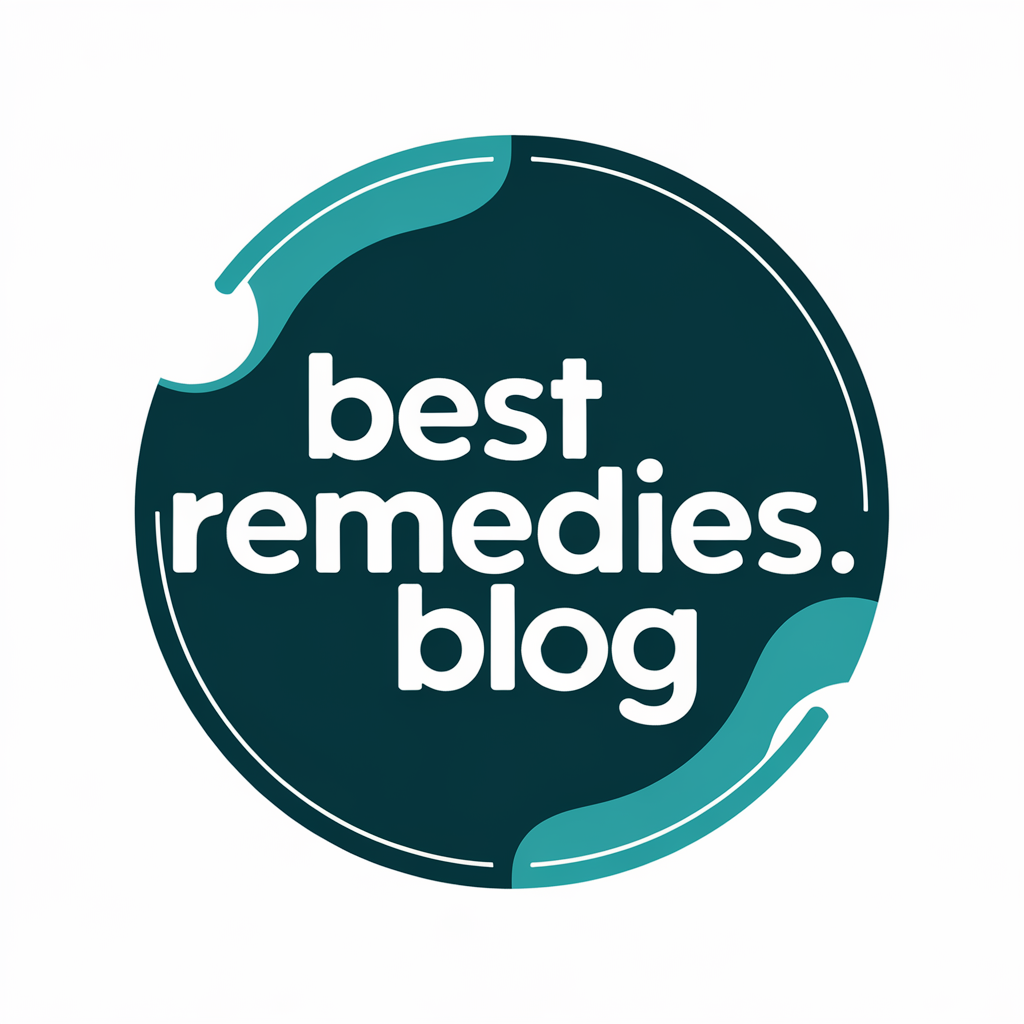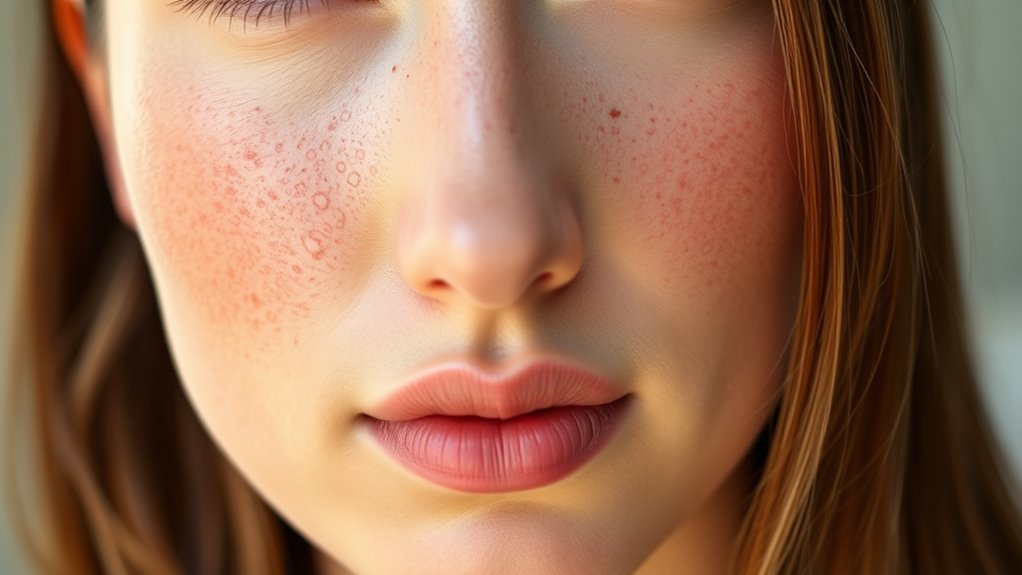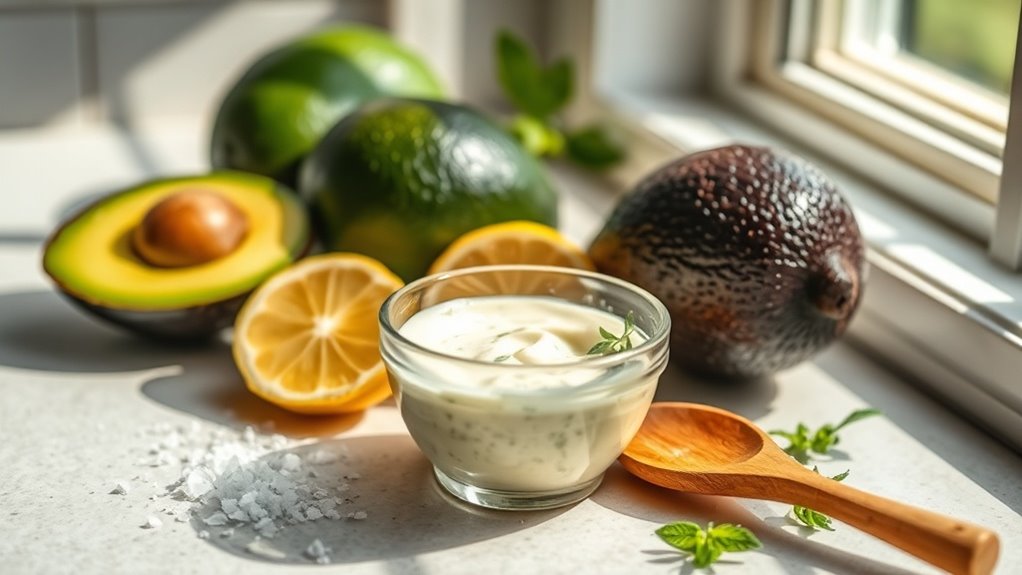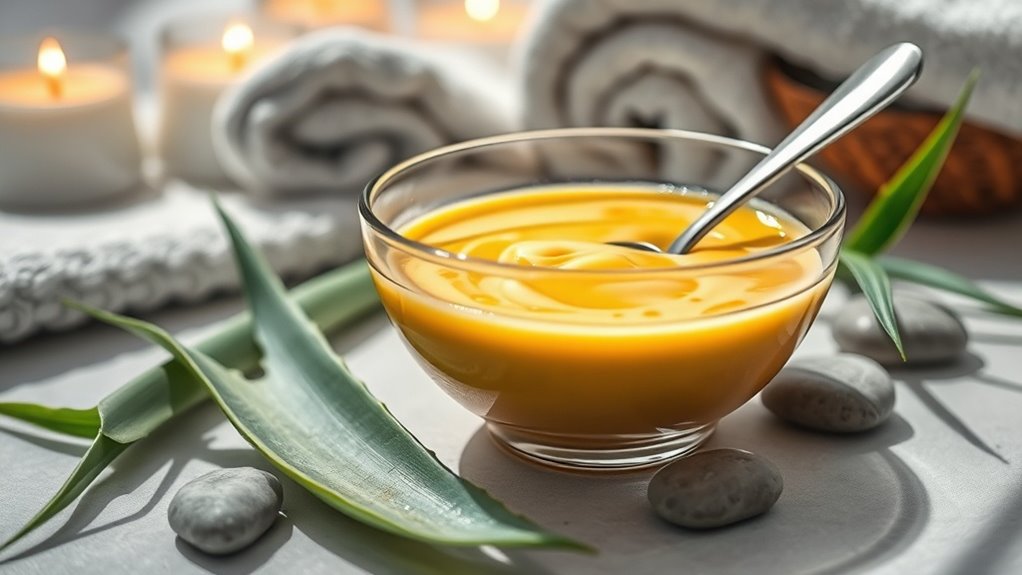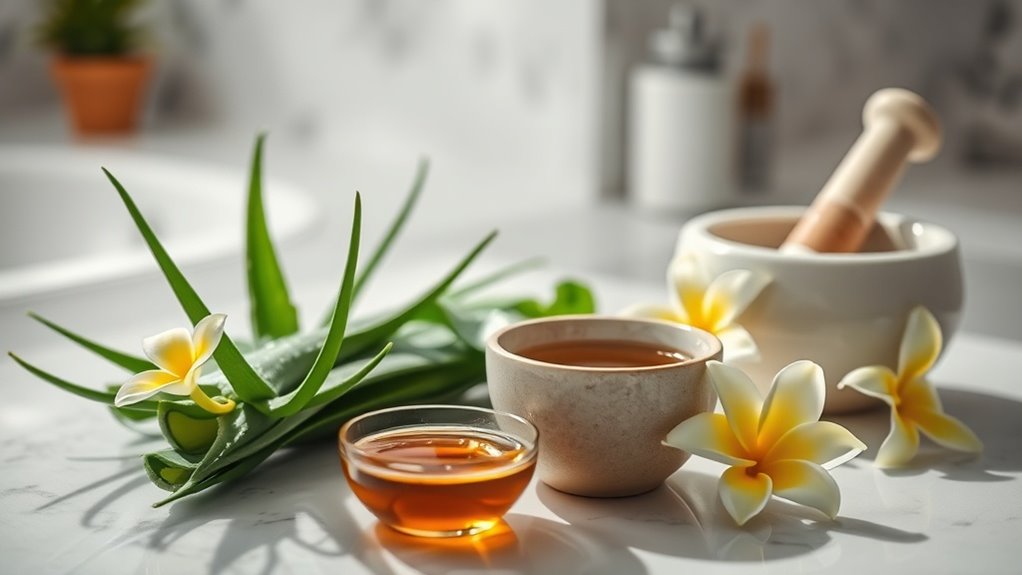Evidence from clinical studies shows that reducing sugar intake lowers inflammation, a key factor in breakouts.
Now, explore how these changes support clearer skin in just one week.
Additionally, incorporating tea tree oil into your routine can help reduce acne-causing bacteria for faster results.
[LIST OF 3 SUBHEADING DISCUSSION POINTS IN ENGLISH
Adjusting your diet offers three key strategies for clearer skin: boosting antioxidants, ensuring hydration, and incorporating healthy fats.
Evidence from dermatological research shows these approaches reduce inflammation and support skin repair, as seen in studies on nutrient impacts.
-
Load up on colorful fruits and vegetables; they’re rich in vitamins that combat oxidative stress, per nutritional science.
- Drink ample water daily; it flushes toxins and maintains skin moisture, backed by hydration studies.
- Add omega-3 sources like avocados; they balance skin oils and lessen breakouts, according to clinical trials.
- Include fiber-rich whole grains; they aid digestion and indirectly promote clearer skin through gut health research.
Cutting Out Sugar
Cutting out sugar from your diet offers a powerful strategy for clearer skin by curbing inflammation and hormonal fluctuations.
Studies indicate that excessive sugar intake elevates insulin, triggering androgen production and sebum overproduction, which clogs pores and fosters breakouts.
For instance, a review in the Journal of the American Academy of Dermatology links high-glycemic diets to increased acne severity.
By swapping sugary treats for whole foods, you’re reducing oxidative stress and promoting skin healing.
Track your progress; within days, you’ll likely see diminished redness and fewer new spots, as this dietary shift stabilizes your hormones effectively.
Incorporating Leafy Greens
Incorporating leafy greens into your diet delivers key nutrients that combat acne and promote clearer skin.
These vegetables supply antioxidants, vitamins, and minerals that target inflammation and oxidative stress, key factors in breakouts.
- Spinach boosts beta-carotene intake, converting to vitamin A for enhanced skin cell turnover and reduced pore clogging.
- Kale provides vitamin K, aiding wound healing and minimizing acne scars through better blood clotting.
- Arugula offers folate, supporting DNA repair and cellular regeneration to maintain clear, resilient skin.
- Swiss chard delivers magnesium, regulating sebum production and preventing bacterial growth in pores.
Increasing Hydration Levels Daily
Increasing your daily hydration levels can play a key role in reversing breakouts, as research shows that even mild dehydration impairs skin barrier function and promotes inflammation.
You’ll enhance your skin’s moisture retention by aiming for at least 2-3 liters of water daily, based on studies in the Journal of Clinical and Aesthetic Dermatology.
Active hydration reduces sebum production and supports cellular repair, minimizing pore clogging.
Track intake with a simple app; evidence from hydration trials indicates clearer skin within days.
Don’t overlook herbal teas, as they aid detoxification without added sugars, optimizing your barrier’s defense.
For an extra health boost, try adding citrus infusions to your water to enhance hydration and support immune function.
Incorporating Exercise Into My Routine
How does regular exercise combat breakouts effectively?
